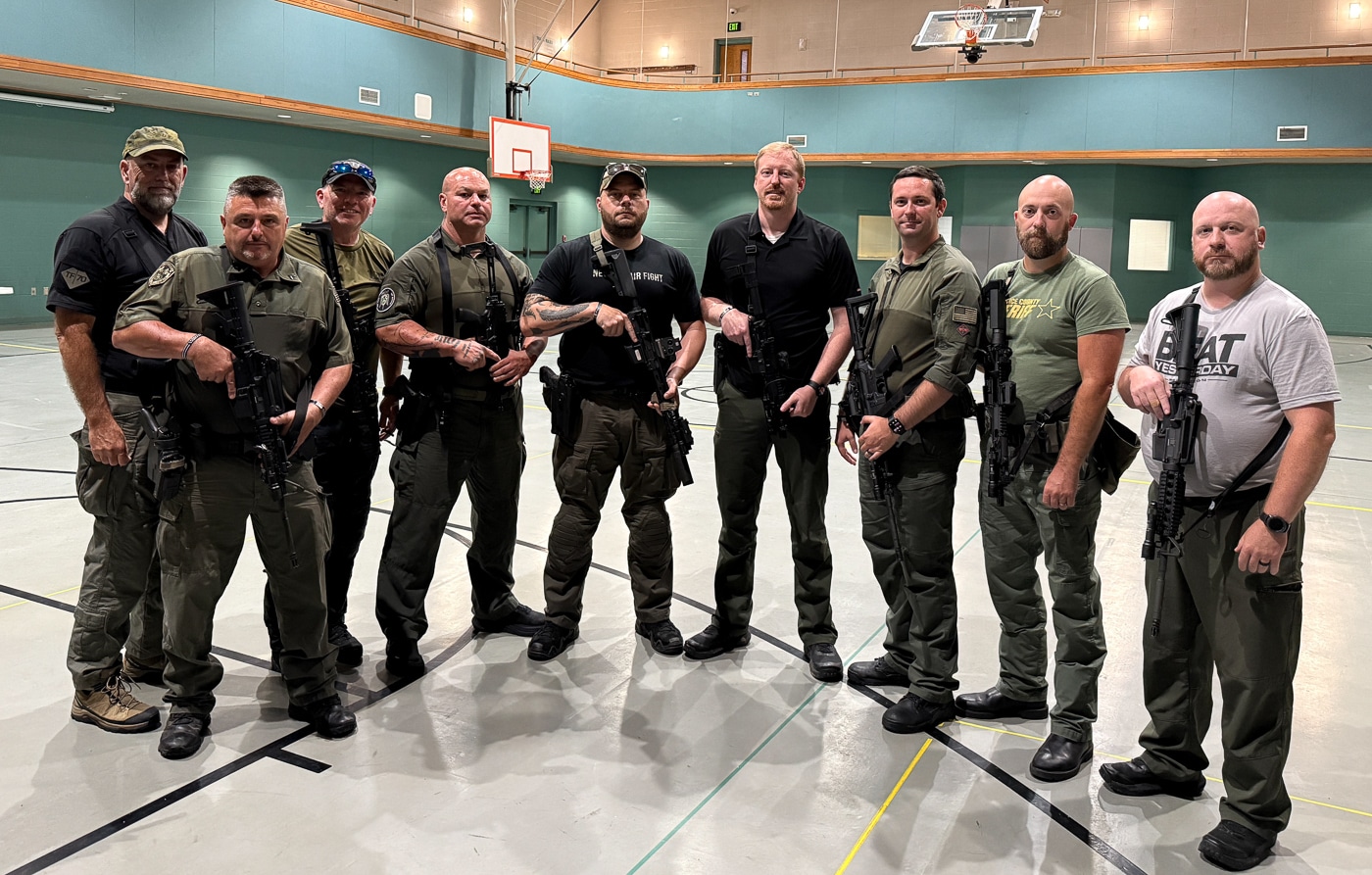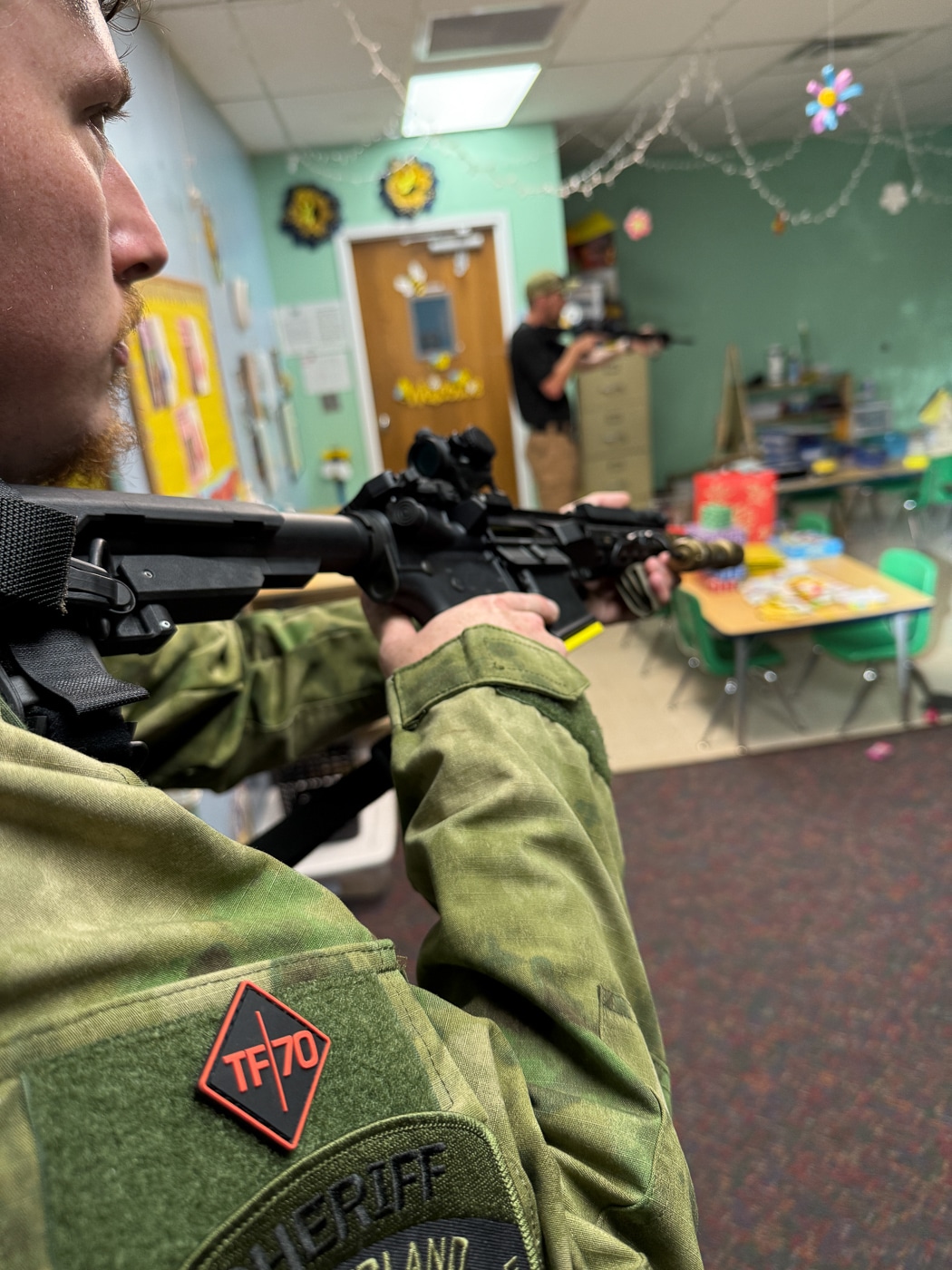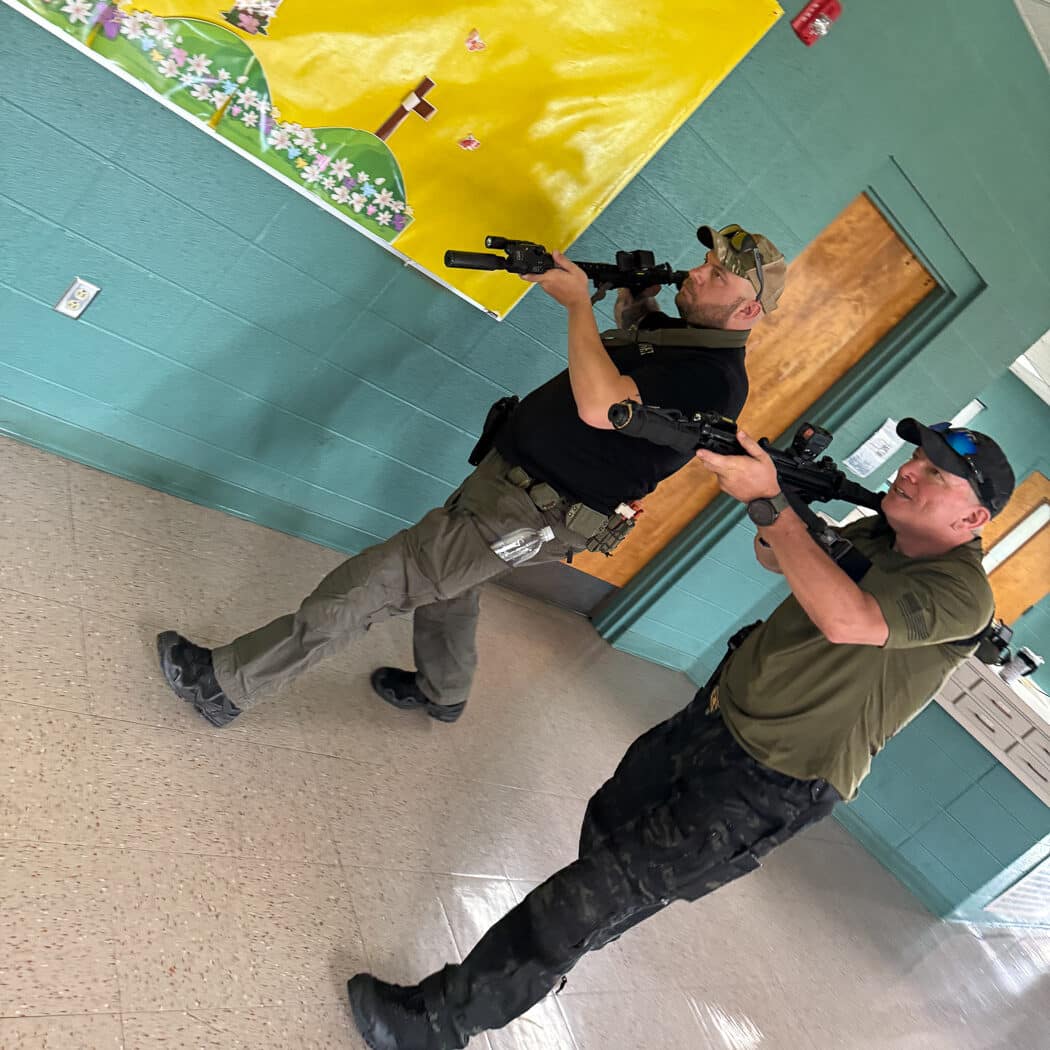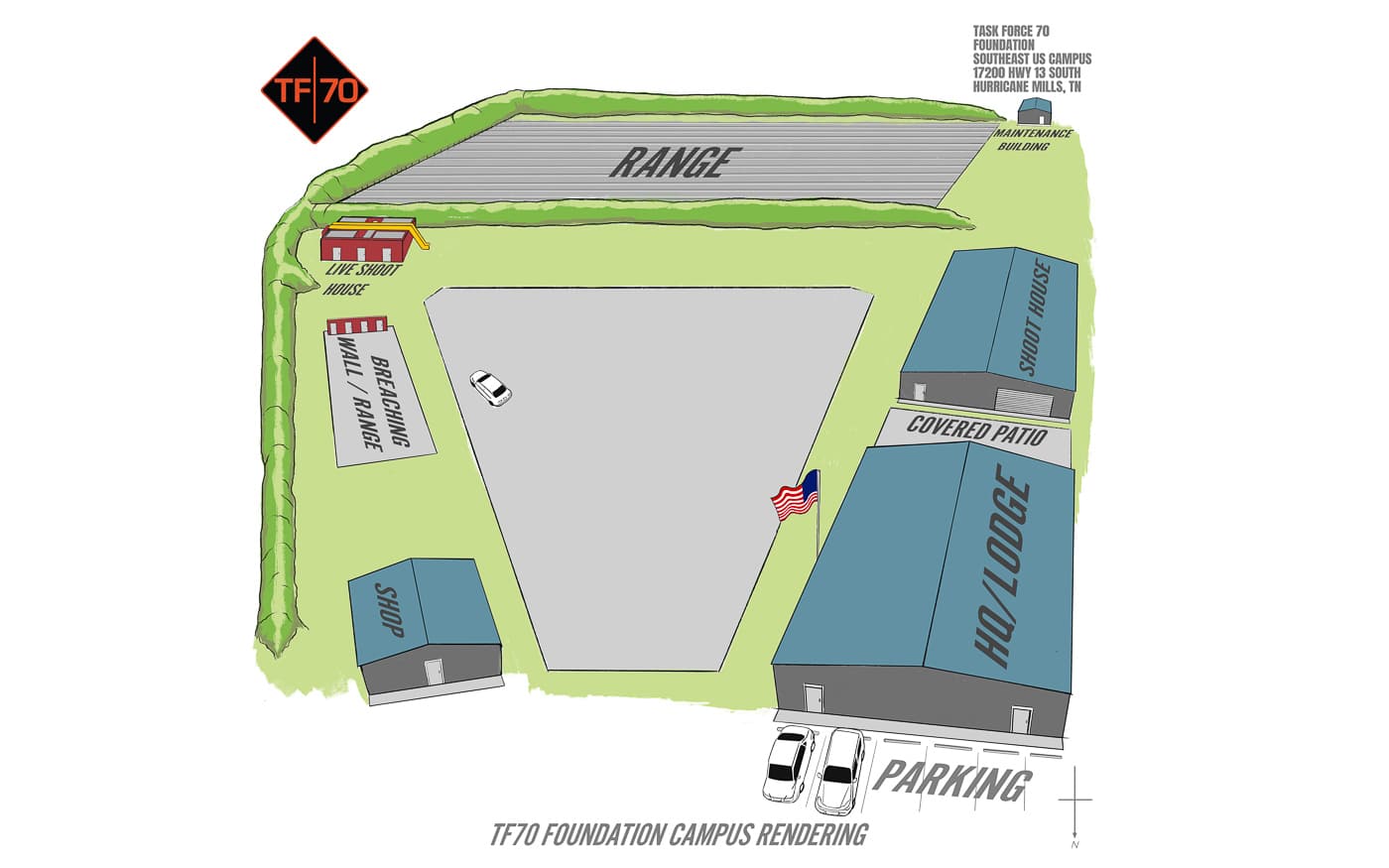In the 21st century, use of force training for law enforcement officers has become especially challenging. Today’s officers are expected to be proficient in a wide range of control options, use sound judgment, and have a thorough understanding in the judicious use of force. There is simply no getting around the fact that training represents a big piece of the budget for all law enforcement agencies in both time and resources, but it can be a very steep hill to climb for the smaller departments.
Unlike what we typically see in motion pictures or television, most law enforcement agencies here in the U.S. are relatively small. Some recent data compiled by the Department of Justice illustrates that 46% of the departments had 10 or fewer fulltime officers and roughly 28% had between 10 and 24 officers. Unlike the bigger departments, the small outfits are unlikely to have specialized units dedicated to training or legal issues. Officers can sometimes train at a regional facility. but often that too comes up short because of staffing limitations.
It may surprise many, but statistics continue to illustrate that in any given year, most officers killed or seriously injured in the line of duty were employed by small rather than big city departments. Clearly, there is very big need for these officers to be afforded the same quality of training as those who work for the larger agencies.

Considering the many obstacles faced by smaller departments, how might this be accomplished? Task Force 70 (TF70) is a non-profit 501c3 foundation whose mission is to equip law enforcement officers in rural, small town, and underfunded jurisdictions across the country with the critical skills necessary to effectively recognize and respond to violent emergency situations. This is achieved through focused tactical training, a strong foundation in the U.S. Constitution, and ongoing support through purposeful facilities and resources.
TF70’s Big Five
So exactly what areas does this training focus on? As indicated earlier, training takes a big bite out of the budget and providing meaningful, street relevant instruction is often beyond the means of many smaller departments. There is significant case law that spells out no matter how big or small the agency is, there is an obligation to train officers in tasks that they might be expected to perform. Quite simply, just because you are a small department, you still have an obligation to see that your officers are trained to the highest level in order to maintain their safety as well as that of the public they are sworn to protect.
Individuals associated with Task Force 70 have strong military and law enforcement backgrounds and are in a very good position to identify foundational principles and skills incorporated into their instruction. After careful consideration, they have distilled these priorities down to five core principles. They are as follows:
U.S. Constitution: Use of force by law enforcement is indeed a warrantless seizure, and such application — even in rapidly evolving emergency situations — must be consistent with the Constitution. I for one have long considered this to be just as important as skill proficiency.

Marksmanship: Unfortunately, firearms training is grossly deficient in many smaller departments, with officers expending as few as 50 rounds per year in some cases. TF70 training will focus on the fundamental use of force tools in rapid and confusing circumstances and environments. This is a welcome departure from the firearms experience as many officers were previously limited to static line training.
Breaching: Quite simply, when you work in the Outback, the team cannot get there fast enough to solve your problem. Officers will be taught how to gain rapid entry in life-threatening situations through the application of consistent, proven methods. Lack of this ability has on occasion caused tragedy when it could have been averted.
Emergency Medical Skills: In many rural communities, a response by EMS personnel will be delayed. Patrol officers will be taught how to stabilize victims while protecting them from threats until they can be turned over to medical professionals.
Tactics: All too often patrol officers are, at best, given some cursory familiarization with tactics. Quite frankly, the teaching of tactics should not be limited to SWAT operators. Officers will be taught a simple, repeatable, effective set of tactics that can easily be developed further and maintained correctly through training. These tactics can be employed across all environments and circumstances.
Why Do We Need This?
There is a huge disparity in the size of police agencies here in the U.S. as well as the populations and types of areas they serve. Accordingly, budgets, training and standards are also very diverse. Of the approximately 750,000 city and local police officers, over 70% serve communities of less than 10,000 people. While there are significant federal and state grants as well as line-item budgets for law enforcement training, the vast majority is focused on the larger departments. Less than 6% of federal and state funding finds its way to the rural small town, underfunded agencies where the need is just as great.

Task Force 70 was founded to fill the need for enhanced, professional development and tactical training and focused on education for officers who need it the most but can’t afford it. Make no mistake about it, the patrolling smaller communities, often far off the beaten path, come with the same degree of risk as the big city. Based on this need, Task Force 70 exists to fund and provide no cost training to these officers without government funding and strings attached. For those smaller departments who simply don’t have the resources, this is indeed a godsend.
Training Offered
At the present time, Task Force 70 is offering two courses. Both are five days in duration with 50 hours of instruction provided, and are taught at their facility in the Southeast U.S. Currently, a dedicated, state of the art facility is being built in Central Tennessee which will include a range, specialized structures, and a sleeping lodge.

First up for consideration is Course 1: Patrol Tactical Operations. This block of instruction is focused on the application of the Big Five to unexpected violent situations that require an immediate response by either the individual officer or small team. It has been my observation for some time that training in this critical area is not being accomplished, particularly by smaller outfits. As we all recognize, waiting it out and calling in the specialists often results in an unwanted outcome. By integrating the elements of the Big Five into the mix, officers will be able to respond more effectively to complicated, rapidly evolving violent situations far more effectively and be equipped to mentor others.
Course 2: Patrol Hostage Rescue builds on the principles learned in Patrol Tactical Operations. Situations sometimes arise where a victim is being held against their will and requires immediate intervention. Highly focused skills are needed to successfully intervene immediately because waiting for backup may likely lead to loss of life. These types of scenarios are not limited to larger, more urbanized areas and of late have unfolded in homes, schools, businesses, and public areas in small towns.
Making It All Work
Despite the fact that 70% of the nation’s police officers serve communities of less than 10,000, these same departments are typically on the short end of the stick when it comes to state or federal financial support. As a result, these officers are not afforded training in many critical areas which would keep both them and their communities safe. Task Force 70 was created to change that and ensure that officers in smaller, rural agencies are provided with skills to handle unexpected emergencies that can unfold just about anywhere.

Unlike federally controlled programs, Task Force 70 is independent and the funding is through private donors and benefactors. To succeed in this mission, TF70 needs to rapidly gain traction through small donations and maintain a pool of regular contributors.
According to founder and director, John Chapman, “The Task Force 70 Foundation identified a critical need for small town police to receive advanced training that was not being funded by our tax dollars. To avoid unnecessary government entanglement and detrimental oversight, we’re doing what we can without them. That is why we are asking for your support of $20 per month in our mission to enhance the constitutional protection and personal safety of our rural communities.” Consider supporting Task Force 70 with a reoccurring, tax deductible monthly donation of $20.00.
A Noble Cause
In a perfect world, training for smaller, rural departments would be just as well funded as the larger agencies. Unfortunately, that is not the case, and the bigger outfits continue to get a much bigger piece of the pie. The harsh reality is that dangers faced by those officers and the communities they serve are every bit as real as those faced by the big city cops. The big difference is a timely backup isn’t minutes away and typically those officers who work off the beaten path have to solve the problem without any assistance.

There are indeed many institutions that provide training in practical marksmanship, operational skills, and tactics to law enforcement officers. However, much of this is beyond the reach of small, rural departments.
The bold initiative advanced by The Task Force 70 Foundation can help fill that gap. Director Chapman summed it up with, “Our organization focuses on three crucial functions that support rural law enforcement officers: week-long campus-based courses, mobile training teams and the Patrol Institute. These actions are only possible through the support of people like yourself and companies like Springfield Armory who have a track record of delivering on quality products and aligning with organizations that help everyday Americans.”
Consider lending your support to The Task Force 70 Foundation. To succeed in this noble cause, they need to rapidly gain traction to accomplish their mission. Your monthly donation is tax deductible and directly supports training officers to enhance not only their safety but the communities they serve.
For more information about the Task Force 70 Foundation, please visit www.TF70.org/donate. Please use support code SA when you donate.
Editor’s Note: Be sure to check out The Armory Life Forum, where you can comment about our daily articles, as well as just talk guns and gear. Click the “Go To Forum Thread” link below to jump in!
Join the Discussion
Featured in this article
Read the full article here









